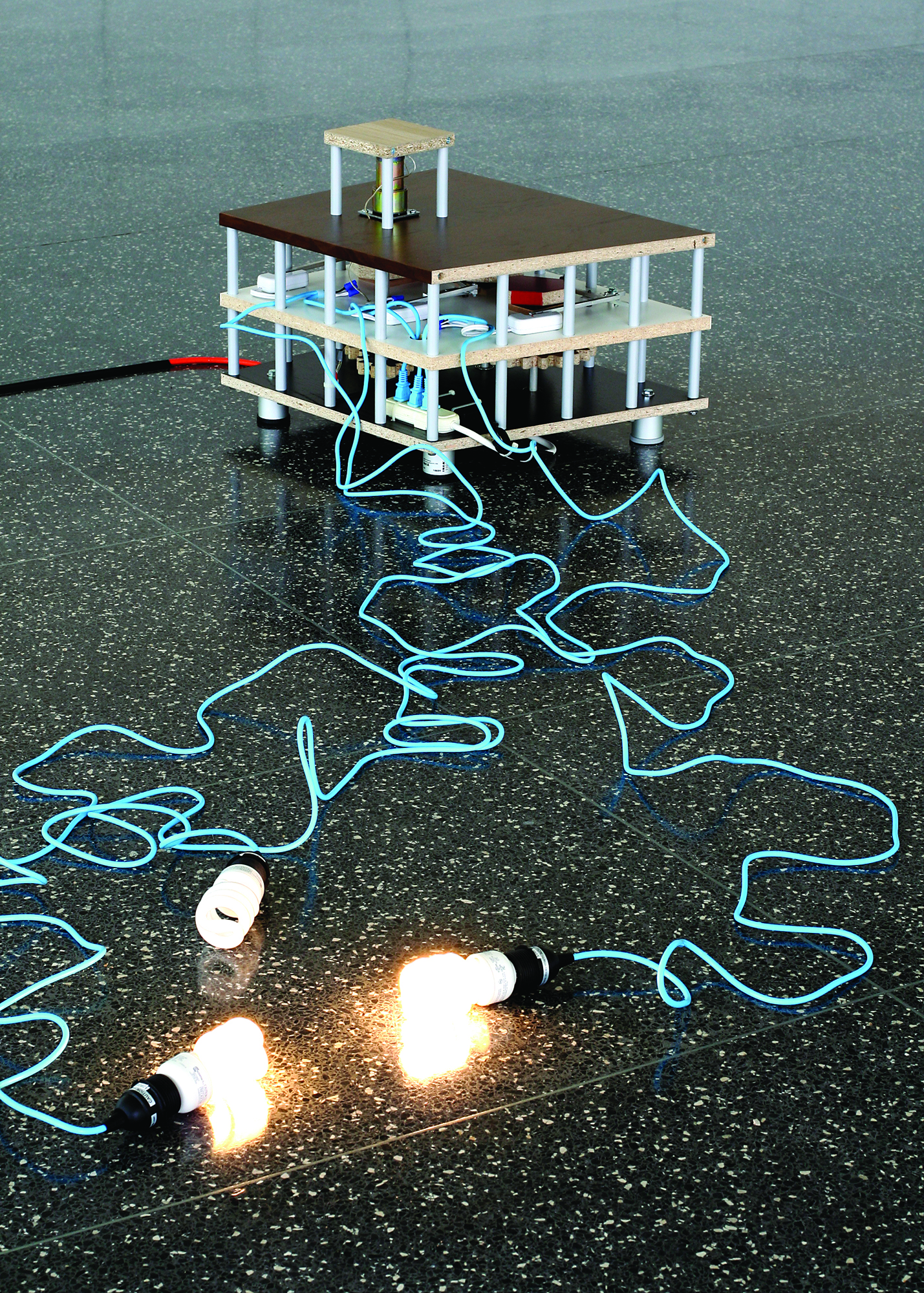July 10 – August 31, 2014

Jeff Carter, Linear Accelerator, 2011. Modified IKEA products (laminated MDF, aluminum, light fixtures, dimmers), electric motor, hardware. Courtesy of the artist.
Using ready-to-assemble components from the global home-furnishings store Ikea, Jeff Carter repurposes them into architectural models that are simultaneously familiar and a bit "off." His constructions explore the formal vocabulary of Bauhaus architecture while also considering the dilemma of modern material culture: can mass-produced consumer goods be "good" design? Which is more socially useful: inexpensive products to buy or artisanal production and jobs? Robots or craftspeople?
The idea that good design can improve society, a central tenet of the Bauhaus, migrated to Chicago with the refugee architects like Walter Gropius during World War II. Beginning in 1945 Gropius guided the plan for Michael Reese Hospital's campus on the south side of Chicago; his pristine Modernist buildings seemed to represent rationality and functional elegance—until the hospital failed and in 2009 the city government abruptly razed the site. By modeling his works on this vanished project and building them from cheaply produced materials, Carter reminds us that even the ideals of the Modernist aesthetic must struggle against time and history.